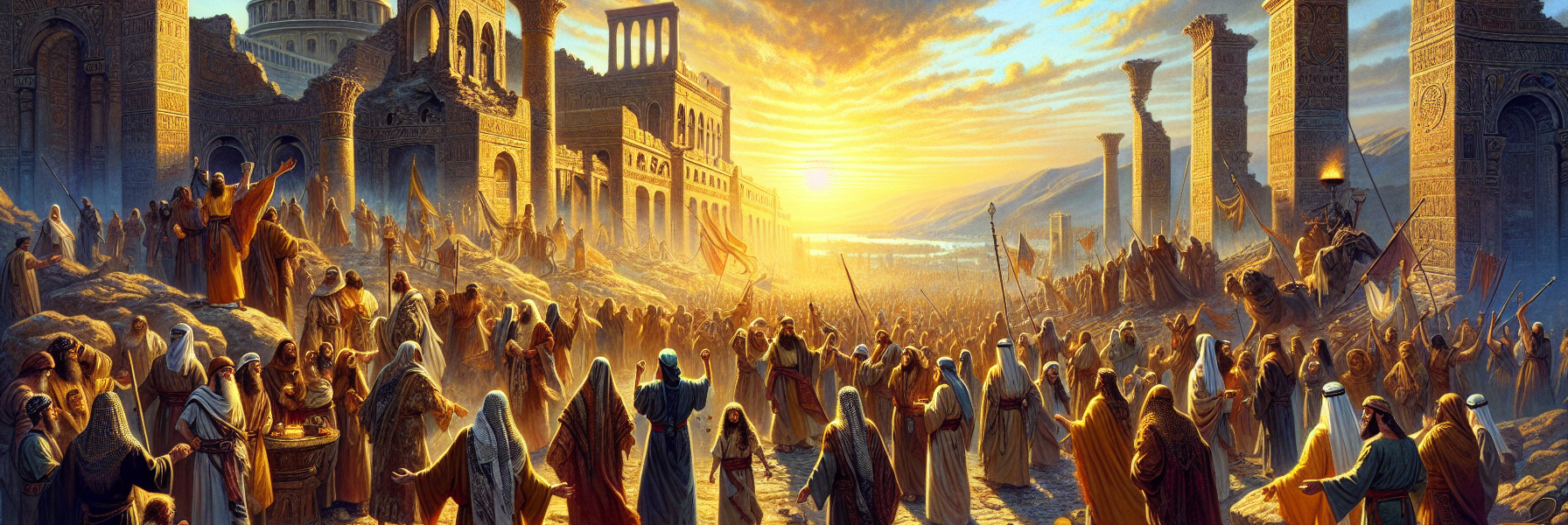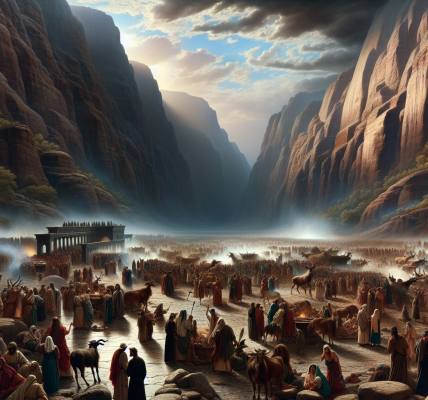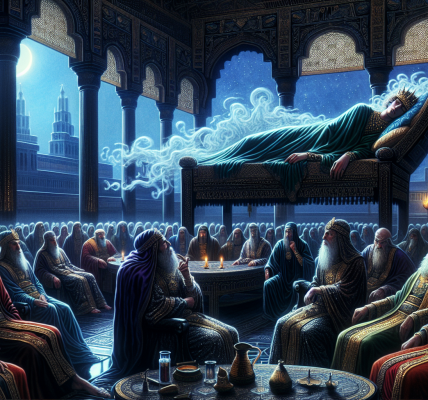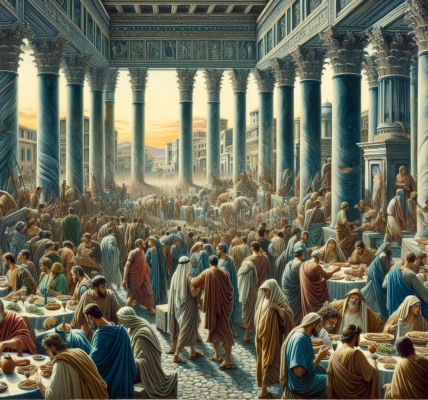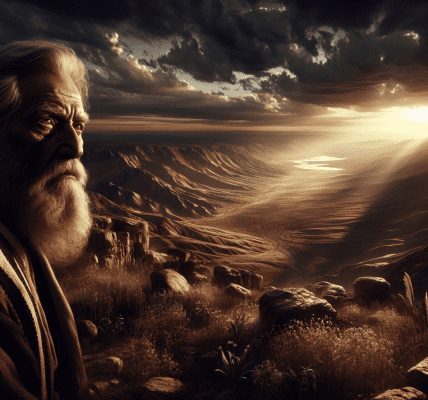**The Sacred Fire Rekindled: A Story of Restoration from Ezra 3**
The morning sun rose over the ruins of Jerusalem, casting golden rays upon the broken stones and charred remnants of what had once been the glory of Israel. The exiles had returned—men, women, and children with hearts full of hope, their spirits stirred by the decree of Cyrus, king of Persia, who had released them from captivity. Among them was Jeshua the high priest and Zerubbabel, the governor, descendants of Aaron and David, standing as living symbols of God’s promise.
Months had passed since their arrival, and though the land was still scarred by the devastation of Nebuchadnezzar’s conquest, the people had not forgotten the Lord’s command. The seventh month had come—the month of Tishri, sacred with feasts and remembrance. A hush of anticipation settled over the assembly as the leaders gathered the people at the site of the old Temple, where the altar of the Lord had once stood.
The ground was uneven, littered with rubble, but the priests, their robes worn but clean, began the solemn work of clearing the debris. Strong hands lifted the heavy stones, carefully setting them in place. The altar rose again, not with the grandeur of Solomon’s days, but with the humble determination of a people clinging to the mercy of their God.
As the last stone was set, a murmur spread through the crowd. Jeshua, his face lined with years of sorrow and faith, raised his hands. The people fell silent. “It is time,” he declared, his voice trembling with emotion. “Time to offer the first sacrifices to the Lord in this holy place once more.”
Wood was stacked upon the altar, and the first lamb, unblemished, was brought forward. The priests, their hearts pounding, took their positions. The fire was kindled, and as the smoke began to rise, a collective gasp escaped the people. For though no heavenly flame descended as in the days of Moses or Solomon, the presence of the Lord was undeniable. Tears streamed down the faces of the elders who remembered the former Temple, their cries mingling with the joyful shouts of the younger ones who had only heard of such worship in stories.
Morning and evening, the sacrifices resumed, as the Law commanded. The scent of burning offerings filled the air, a fragrant reminder that God had not abandoned them. The Feast of Tabernacles soon arrived, and the people built makeshift shelters on their rooftops and in the streets, just as their ancestors had done in the wilderness. Laughter and song echoed through Jerusalem—sounds not heard in decades.
Yet amid the joy, there was also sorrow. As the foundations of the new Temple were laid, the priests in their sacred garments blew trumpets, and the Levites, sons of Asaph, raised their voices in praise:
*”He is good; His love toward Israel endures forever!”*
But the older priests and Levites, who had seen the splendor of the first Temple, wept aloud. Their grief was deep, for this new beginning seemed so small in comparison. The younger ones shouted for joy, unable to contain their excitement, and the two sounds—mourning and celebration—blended into a single chorus before the Lord.
Zerubbabel stood watching, his heart torn between the past and the future. He placed a hand on the shoulder of a weeping elder. “The Lord has brought us back,” he said softly. “This is not the end, but the beginning. His promises remain.”
And so, with trembling hands and steadfast hearts, the people of Israel rebuilt what had been lost. The fire on the altar burned continuously, a sign of their renewed covenant with the God who had delivered them, who was with them still, and who would one day bring a greater restoration than they could imagine.
For even in their weakness, God’s strength was made perfect. And though the Temple before them was but a shadow of what had been, it was also a promise of what was yet to come.
